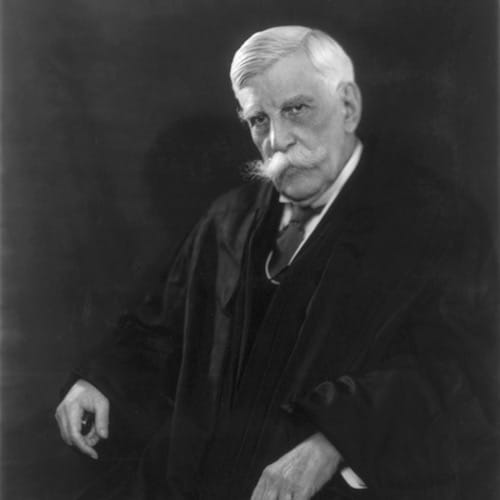 Culture & Ethics
Culture & Ethics
New and Old Eugenics United by Rejecting Human Exceptionalism

Buck v. Bell was one of the most pernicious Supreme Court decisions ever written. Authored by the odious social Darwinist Oliver Wendell Holmes, the 1927 8-1 ruling permitted an innocent woman named Carrie Buck to be involuntarily sterilized.
There is a book about the case just out, Imbeciles, the title taken from Holmes’s infamous statement in the ruling: “Three generations of imbeciles is enough.” The issue is discussed by Charles Lane in the Washington Post:
At its peak, in the years before, during, and just after World War I, the pseudo-science of “eugenics” was a national fad, almost a mania. Advocates were not only or even especially right wing; state sterilization laws emerged first in the North and West, and many progressives embraced “racial hygiene” along with pure food and drug laws or urban sanitation.
Lane makes a big mistake. The “right wing” was not the driving force behind eugenics. Progressives were, and those in the ruling class.
Indeed, the progressive elite and ruling class of the era almost unanimously and enthusiastically embraced the pernicious notion with authoritarian zeal that human beings could be invidiously divided between the so-called “fit” and “unfit.” Think Theodore Roosevelt. Think Margaret Sanger. Think even — good grief! — Helen Keller. Think the Carnegie Institution that funded the evil Charles Davenport at Cold Spring Harbor. Think George Bernard Shaw.
Eugenics was also that era’s scientific consensus. Those who opposed it were branded as anti-progress, perhaps even anti-science.
We see similar agendas at work today; in the sex selection and pre-implantation genetic diagnosis practiced in the assisted reproductive industry; transhumanism’s push for developing “post-human” genetic enhancement technologies, eugenic abortion of fetuses testing positive for Down syndrome and dwarfism, the push for infanticide of babies born with disabilities, among other supposedly progressive causes.
These “new eugenics” ideas will end up as tyrannical as the original version was. Here’s why: All eugenics, new and old, spring from the same toxic well — the denial of human exceptionalism and of the intrinsic and equal dignity of each and every one of us. Once that dark vision is embraced, the weak come into mortal danger.
The best book I have read on eugenics is War Against the Weak, by Edwin Black.
Image: Oliver Wendell Holmes, by Harris & Ewing [Public domain], via Wikimedia Commons.
